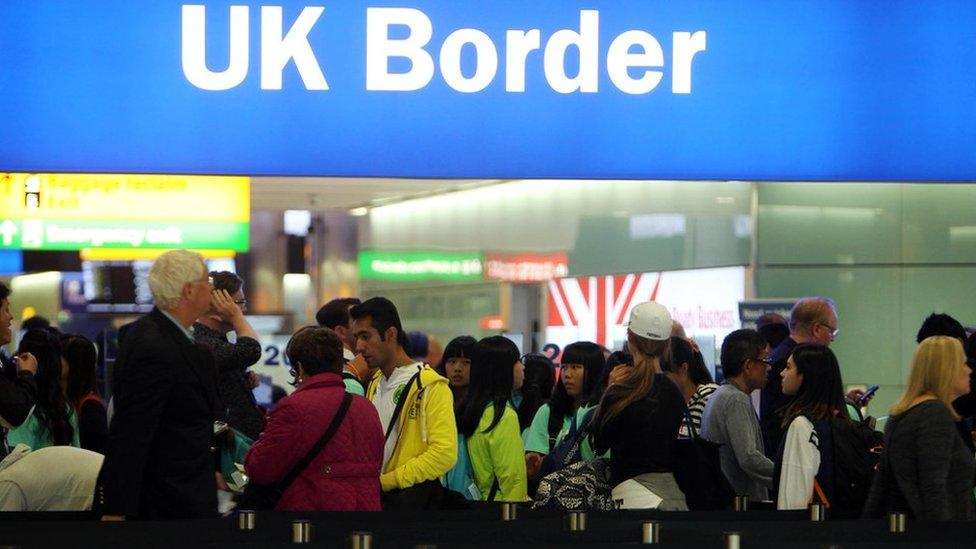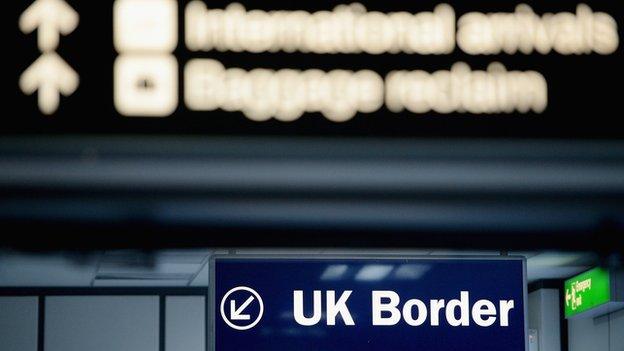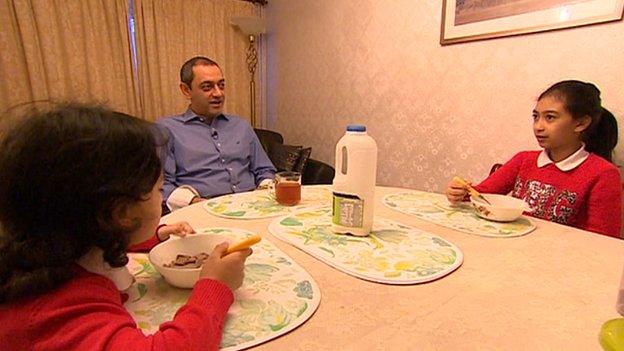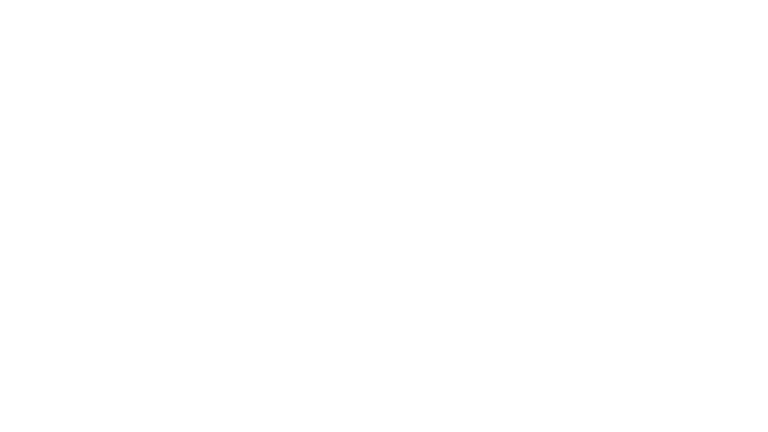Immigration rule 'has split 15,000 children from a parent'
- Published

The immigration rules were introduced in 2012
At least 15,000 children are separated from a parent because of income rules affecting some migrants, says the Children's Commissioner for England.
The estimate comes from an analysis of a policy that bars the UK entry of a non-EU parent if their British spouse earns less than £18,600 a year.
Children's commissioner Anne Longfield said the UK was creating "Skype families" who had been forced apart.
The Home Office says the rules are lawful and compatible with rights.
Since 2012, immigration rules have barred the entry of spouses from outside the European Union unless their British partner meets the minimum income threshold, external.
'Profound impact'
The level rises to £22,400 if a child is not a British or European Economic Area (EEA) citizen, with an additional levy of £2,400 for each subsequent child.
The rules were created as part of the then-coalition government's attempts to control immigration from outside Europe, with ministers arguing they would ensure no incoming families would be a burden on the UK taxpayer.
In a study, researchers from Middlesex University and the Joint Council for the Welfare of Immigrants estimated the number of children affected by examining the number of people who have been refused visas or permission to settle since the changes were introduced.
There are no official numbers for the number of children affected.
Ms Longfield said the policy had created families in which children could speak to one of their parents only online - leading to suffering and distress.
"We are not talking about having unrestricted access but we need to put the heart back into this policy and consider the profound impact the rules have on this group of British children and their families," she said.
Legal challenges
Last year the Court of Appeal said the rules were lawful, despite a challenge arguing that they breached the right to family life and duties to protect the best interests of children.
However, the issue is expected to be examined by the Supreme Court next year.
The Home Office said: "We welcome those who wish to make a life in the UK with their family, work hard and make a contribution. But family life must not be established here at the taxpayer's expense.
"The level of the minimum income threshold reflects the income at which a British family generally ceases to be able to access income-related benefits.
"The policy has been approved by Parliament, and upheld by the courts as lawful and compliant with our legal duty to safeguard and promote child welfare."
But the campaign group Migrants' Rights Network said: "The impression given by the Home Office is that the matter is settled in the courts, but that is far from being the case.
"The Home Office has failed to show that this policy does in fact save the taxpayer any money.
"In reality many people are unable to move abroad, and families who are forced to remain apart are even more likely to need assistance than if both partners are able to work and look after the children in the UK."
- Published11 July 2014

- Published3 March 2014

- Published5 July 2013
